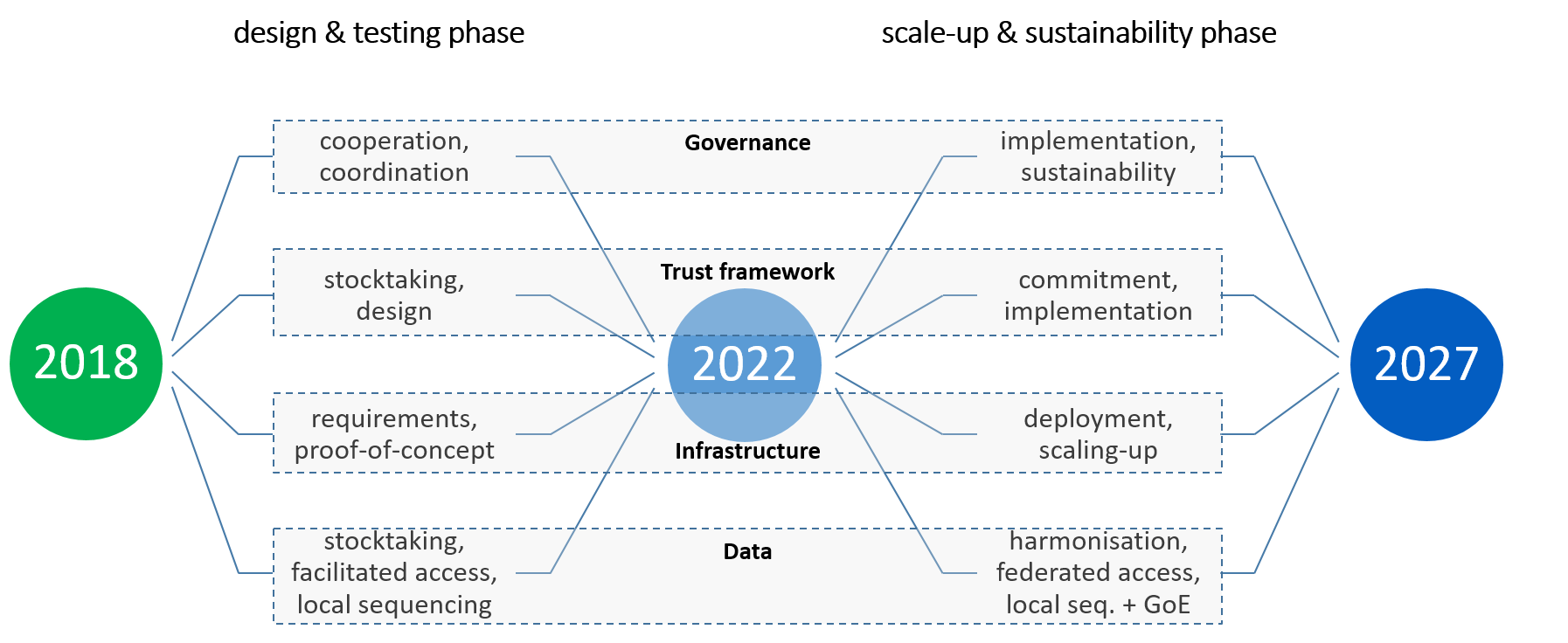Committed to the culture of innovation and the use of technology in government work, Two of Portugal's largest cities have launched projects to improve waste management. Braga adopted an electronic truck management system and Lisbon began using the Internet of Things to monitor container levels of fullness. This is to develop a more effective and efficient process.
In cities, Especially the major ones, Waste management goes beyond being a routine municipal task, It has environmental and health implications, and regulated by financial and economic criteria, and two political and legal frameworks, as well as social and cultural aspects, Especially with the global trend towards sustainability.
In Portugal, Municipalities spend millions annually managing the waste of each and every member of their inhabitants in highly complex and resource-intensive operations, Citizens throw garbage bags on the street for municipal employees to collect on specific dates. They often come across unfilled boxes, They waste time and money checking it manually. Despite the partial dependence of high-income cities on their citizens to pay fees to cover expenses, It's not enough, This necessitates the use of tax revenues to compensate for the shortfall, It turns waste management into a financial burden on municipalities.
To address these challenges, Two pioneering innovations were launched in Lisbon and Braga, To use modern technologies in creating a smoother and more efficient process.
In Braga, The Municipality's Water, Wastewater and Waste Company, Known by the acronym "Ager", an improved network for urban waste management, It is a new system based on a fleet of 23 waste trucks, And a smart board managed by an integrated automated system characterized by environmental responsibility programmed and loaded on modern trucks. In 2018, Aghir launched a project to adopt a more efficient logistics process. It has invested approximately €6.2 million. to install 4,400 waste containers above and below ground, It was distributed according to a map that ensures the presence of a garbage dump at a distance not exceeding 100 meters from any dwelling in the city.
In practice, Vehicles use infrared technology to detect, empty and wash containers directly without the driver having to get off the truck. The network also tracks the time it takes to unload garbage bins. To ensure that the work is carried out according to the plans set in advance. The technical team has developed an advanced analytics suite that uses artificial intelligence to monitor the efficiency of operations at any time. across a wide range of KPIs.
In addition, The network allows reporting of any malfunction that may lead to environmental impacts or health problems, Or for any case of misuse, damage or filling of containers. The idea is to create data sets remotely and send them to the Control and Analysis Center. This data is not limited to vehicles, It even includes the road condition, driver information, nature and quantity of the cargo. The system also analyzes driving patterns and drivers' habits to guide them to optimal behaviors and faster routes.
The management panel adapts intermediate measurements and representations, It is a type of equation that defines mathematical relationships in terms of arguments that make them simpler, Such as using a time medium to determine the location or speed of a moving object. By providing this data, The system assesses driving style and collects data showing the challenges faced by drivers, To develop training programs to overcome them.
The company has allocated part of the funding to complementary systems, As a biodegradable urban waste separation system. This serves the ambitious environmental goals that Braga intends to achieve by 2030, Having signed with 12 other European cities the Green City Agreement, which is committed to intensifying action to reduce pollution in all its forms, protect the environment and biodiversity, and promote a circular economy. Although the Braga authorities do not have a clear innovation strategy, It allocates a large part of its budget to launching joint ventures with public institutions.
In the Lisbon experience, The municipality has implemented an IoT solution to manage urban waste collection operations, It chose to install sensors that monitor the level of fullness of the container and send its readings to management 3 times a day to an application that adopts a mathematical algorithm, It analyzes the data it receives to predict future container filling behaviors and come up with the best ways to collect waste.
Using this solution, General hygiene teams can monitor containers across the city and respond effectively to unexpected fullnesses. Collect information on the quantities and types of waste, And update them on a daily, weekly and monthly basis. The Municipality of Lisbon has so far succeeded in supplying 1,500 containers with smart sensors. It plans to double this number, It looked forward to increasing the efficiency of operations and improving the investment of material and human resources.
In Braga, The smart system helps preserve vehicles and reduce wear and tear rates, It also allows for the reduction of waste collection circles, This means saving finance and fuel consumed and reducing emissions. Besides, Permanent follow-up increases the levels of safety, comfort and efficiency of waste collection workers, Most importantly, direct control of the workflow helps save cost and increase productivity. As innovation fosters partnership between city authorities and their local community, By enabling citizens to report observations and problems.
References:
https://www.themayor.eu/en/a/view/waste-collection-in-braga-meets-telemetrics-5616
https://www.themayor.eu/en/a/view/garbage-bins-in-lisbon-tell-when-they-are-full-2463






